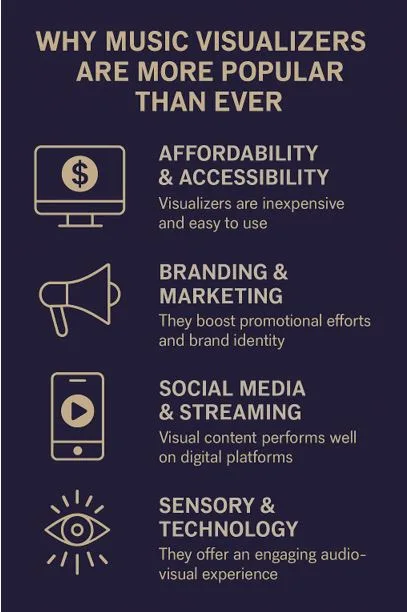Christian Rehab in California and the 12 Steps of AA
Christian rehab in California gives people a place to heal from addiction. These centers focus on both treatment and faith. They are for people who want to stay connected to God while getting sober.
Many of these programs also use the 12 steps of AA. These steps help people stay honest, take responsibility, and rely on a higher power. For Christians, that higher power is usually God.
This article explains how Christian rehab works. It also shows how the 12 steps fit in. You’ll see how both together can help people build a better life.
What Is Christian Rehab?
Christian rehab centers treat addiction like other programs. They offer detox, therapy, and support. But they also include faith. That means there may be prayer groups, Bible reading, and spiritual counseling.
The goal is to help the whole person—body, mind, and spirit. Treatment isn’t just about stopping drugs or alcohol. It’s about changing how someone lives.
Some centers focus only on addiction. Others also help with mental health problems like depression, anxiety, or trauma. This is called dual diagnosis care.
People in Christian rehab don’t need to hide their beliefs. They can talk about God and faith as part of recovery. That can make a big difference for someone who wants to heal spiritually too.
What Are the 12 Steps of AA?
The 12 steps are a list of actions created by Alcoholics Anonymous. They’re used to help people stop drinking or using drugs. Many other programs use them too.
Each step builds on the one before. Together, they help people stay sober and live a better life.
Here’s a simple version of the steps:
- Admit you have a problem
- Believe that help is possible
- Decide to trust a higher power
- Look at your past honestly
- Talk about your mistakes
- Be ready to change
- Ask for help to improve
- Think about who you’ve hurt
- Try to make things right
- Keep checking your actions
- Pray or meditate
- Help others who are still struggling
The steps are not just for alcohol. They work for drug use, gambling, and other addictions too.
How the 12 Steps Fit into Christian Rehab
The 12 steps and Christian rehab go together well. That’s because both focus on spiritual growth and personal responsibility.
Many of the steps match Christian values. For example:
- Step 3 is about trusting God
- Step 5 is like confession
- Step 9 is about making amends, which matches Jesus’ teachings about forgiveness
- Step 11 is about prayer and listening to God
- Step 12 is about helping others, which Christians call serving
In Christian rehab, staff can explain the steps in a way that makes sense with the Bible. They often encourage prayer as part of the process.
Why People Choose Christian Rehab
Here are a few reasons people pick Christian rehab in California:
- They want to grow in their faith while getting sober
- They feel more comfortable around people who believe in God
- They want to heal in a place that supports their values
- They want to pray, worship, or read the Bible as part of treatment
- They’ve tried other programs and want something that feels more personal
Some people come after trying AA or NA but still feel like something is missing. Adding faith to the process can help them feel stronger.
A Typical Day in Christian Rehab
Every rehab center is different. But many Christian rehabs follow a structure like this:
- Wake up, breakfast
- Morning devotion or prayer
- Group therapy
- One-on-one counseling
- Bible study or chapel time
- Lunch and quiet time
- Afternoon skills class or relapse prevention
- Group support meeting or 12-step group
- Dinner
- Evening prayer or reflection time
Some places include outdoor walks, music, or time to journal. Others may offer family sessions or weekend services.
The goal is to build healthy habits. Clients are busy but also have time to rest and think.
Do the 12 Steps Work?
Yes. Many studies show that people who work through the 12 steps are more likely to stay sober. These people also tend to feel more connected to others and to something bigger than themselves.
The steps work best when people stick with them and attend meetings or groups. In Christian rehab, those steps are linked with prayer and community support. That adds strength.
The steps are not about being perfect. They’re about staying honest and asking for help when needed.
What If Someone Has Mental Health Problems Too?
That’s common. Many people in rehab also deal with anxiety, depression, trauma, or bipolar disorder.
Christian rehabs often provide dual diagnosis care. That means clients meet with therapists who treat both the addiction and mental health symptoms.
It’s important not to ignore either issue. If someone only treats addiction but not the mental health part, it’s easier to relapse. That’s why good programs treat the whole person.
Honest Questions and Straight Answers
Q: What if I don’t believe in everything the 12 steps say?
A: That’s okay. Many people take what helps and leave the rest. You can go at your own pace.
Q: Will I be forced to pray or talk about religion?
A: No. Even in Christian rehab, you can choose how much you want to share or take part. Staff should respect your limits.
Q: Do I have to follow a certain church?
A: No. Most Christian rehabs welcome people from all denominations. Some people have never been to church at all. That’s okay too.
Q: What if I mess up?
A: You’re not alone. Relapse happens. The important part is getting back up. Christian rehab helps people deal with failure and keep moving forward.
Real-Life Example: Daniel’s Story
Daniel had been using drugs for years. He tried regular rehab but felt empty. When he went to a faith-based rehab center in California, things changed.
He started reading the Bible again. He began to pray. In group therapy, he talked about guilt and shame for the first time.
With help, Daniel worked through the 12 steps. He made peace with his past and apologized to people he had hurt. Today he’s two years sober. He volunteers at a youth center and helps others find treatment.
He says the mix of faith and structure gave him something to hold onto.
How to Choose the Right Christian Rehab in California
Here are some things to look for:
- Are they licensed and trained?
- Do they offer detox, therapy, and dual diagnosis care?
- Do they use the 12 steps?
- Is there real spiritual support, not just a label?
- Are there aftercare options to help after treatment?
- Are the staff respectful and kind?
Call or visit if you can. Ask questions. You’ll know if it feels right.
Christian rehab in California offers more than just recovery. It offers hope. It lets people grow in faith while healing from addiction.
The 12 steps of AA add structure and support. Together, they help people stay grounded, honest, and connected.
If you or someone you care about needs help, this kind of program might be a good fit. It’s not about being perfect. It’s about showing up, asking for help, and taking one step at a time.
You don’t have to do it alone.



